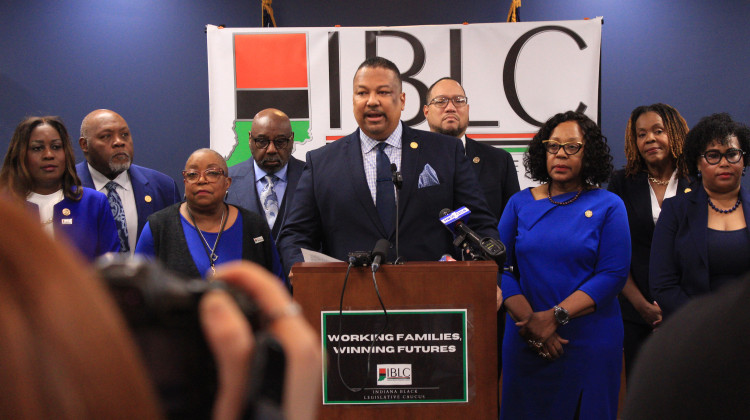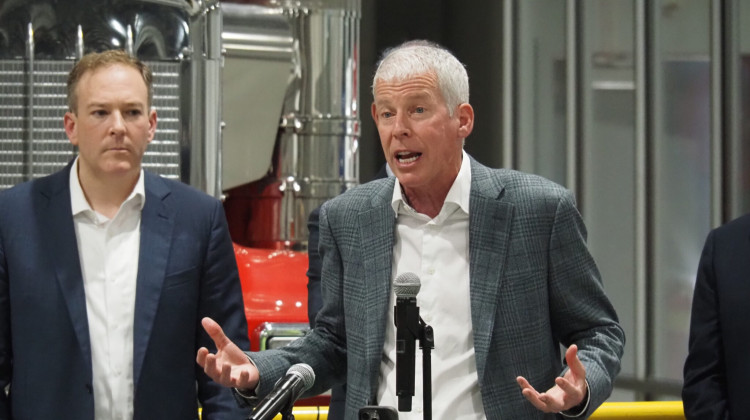
A Purdue University professor is investigating drinking water safety with a grant from the Environmental Protection Agency.
IPBS-RJCA Purdue University professor is investigating drinking water safety with a grant from the Environmental Protection Agency.
Andrew Whelton, an assistant professor in the Department of Civil, Environmental and Ecological Engineering, says drinking water safety, despite what many people might think, is not well understood.
“A lot of the declarations about drinking water safety are not actually based on science,” Whelton says. “They’re based on hope.”
Whelton’s team will use a special building in West Lafayette that has monitors on every single water tap. They’ll collect real time data about how water flows through the building and how clean that water is.
Different pipe materials — lead, copper, plastics — leach different chemicals and allow for the growth of different bacteria. Whelton says scientists and government officials don’t have a good understanding of how these materials impact people’s health.
“So all these questions make it very unsettling for a home owner and a parent who wants to make the right decisions for their family,” Whelton says.
Whelton says water conserving, low-flow fixtures can also contribute to poor water quality.
“We’re using less water, but we’re not really designing the piping and the tanks that are conveying that water and storing it appropriately,” Whelton says.
Whelton says his team will publish the results of the study in a way that’s easy to understand for home owners and builders and government regulators.
Purdue University, in collaboration with Michigan State University and San Jose State University, won half of a $4 million grant from the EPA. Drexler University won the other half.
 DONATE
DONATE






 Support WFYI. We can't do it without you.
Support WFYI. We can't do it without you.